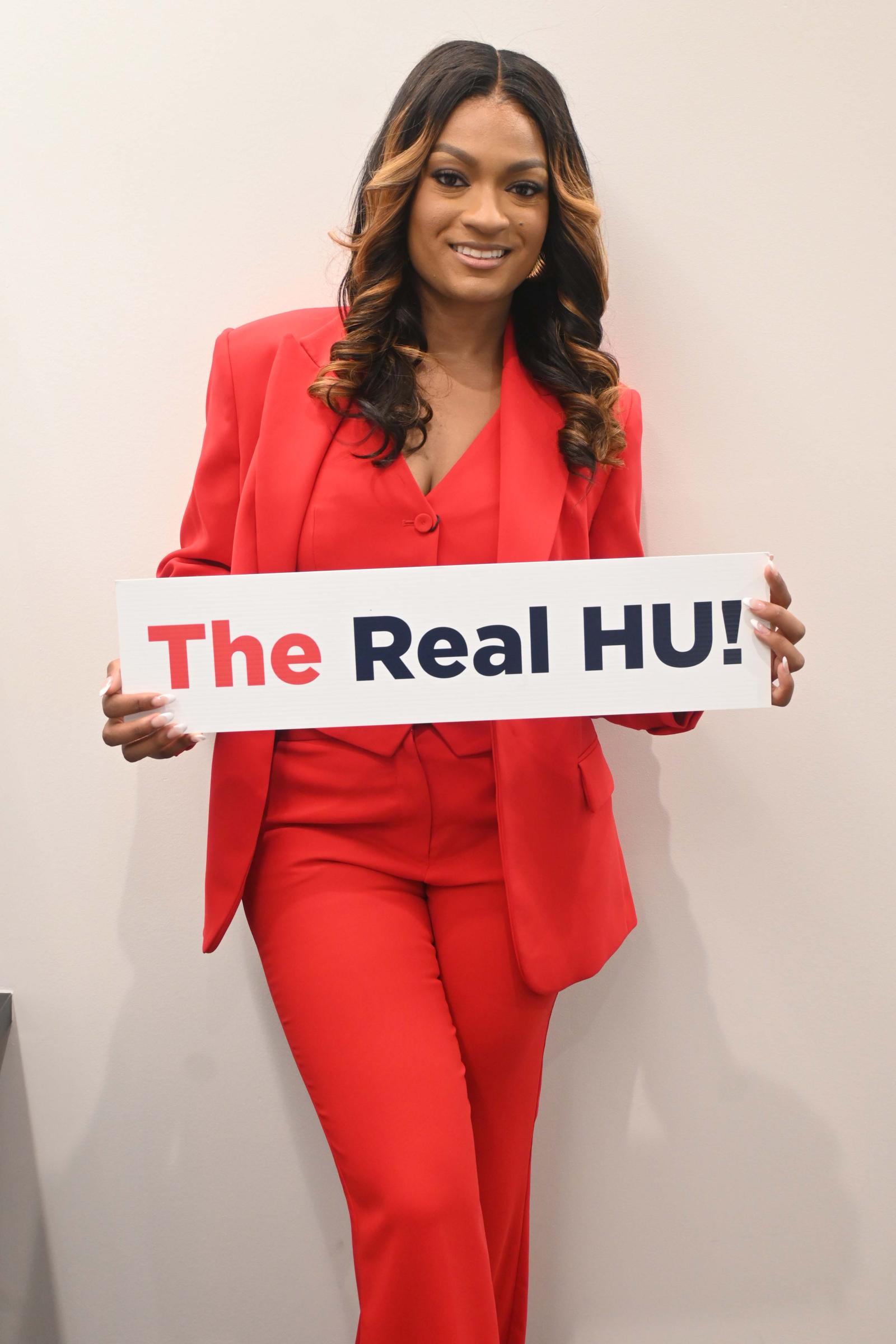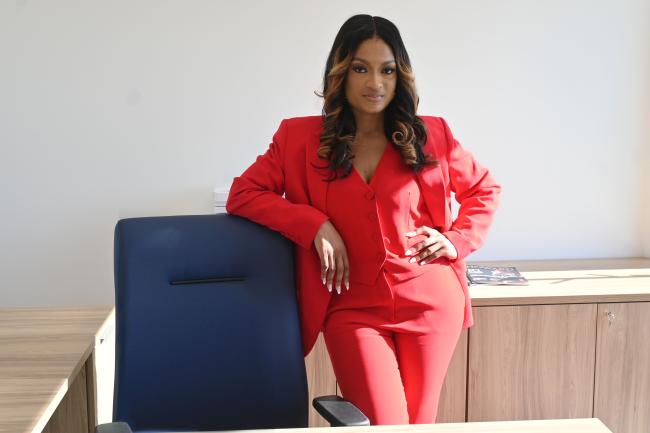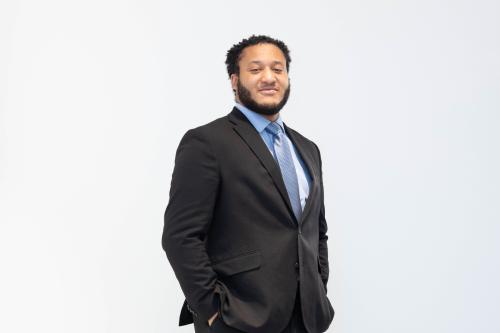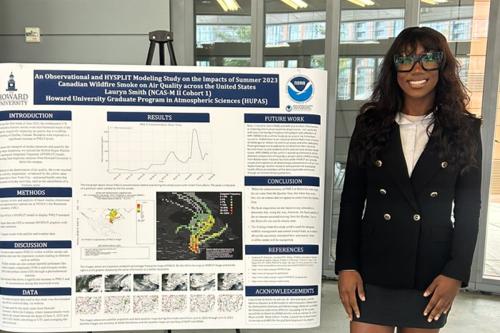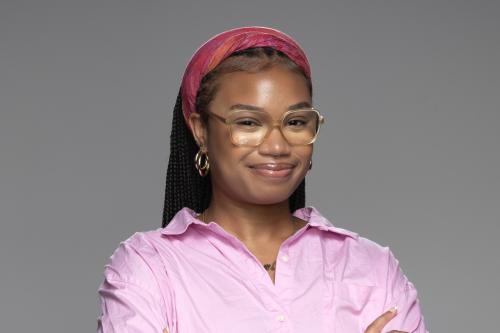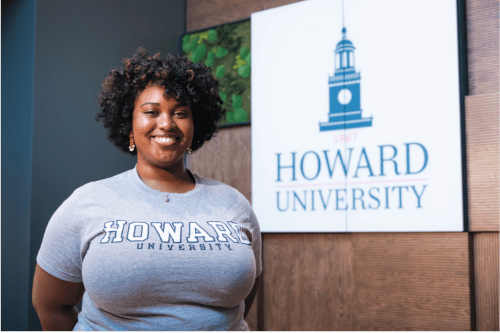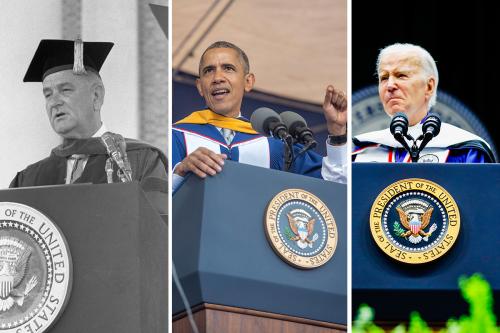"I know clearly the torch that I’m carrying and the obligation I owe to my people to continue the legacy — and not just rest on that of the people who came before, but to build on that foundation."
It seems that at every stage in her still-early career journey, Nastassia Janvier has run ahead of the pack — far ahead. As a Florida State University graduate student pursuing a Master of Public Administration degree, she managed to serve as president of the student body, president of the university’s NAACP chapter, a university trustee, and a member of the Board of Governors for the State University System of Florida, which oversaw 12 public institutions. She also chaired the Florida Student Association, the state’s largest student advocacy organization, representing more than 400,000 students.
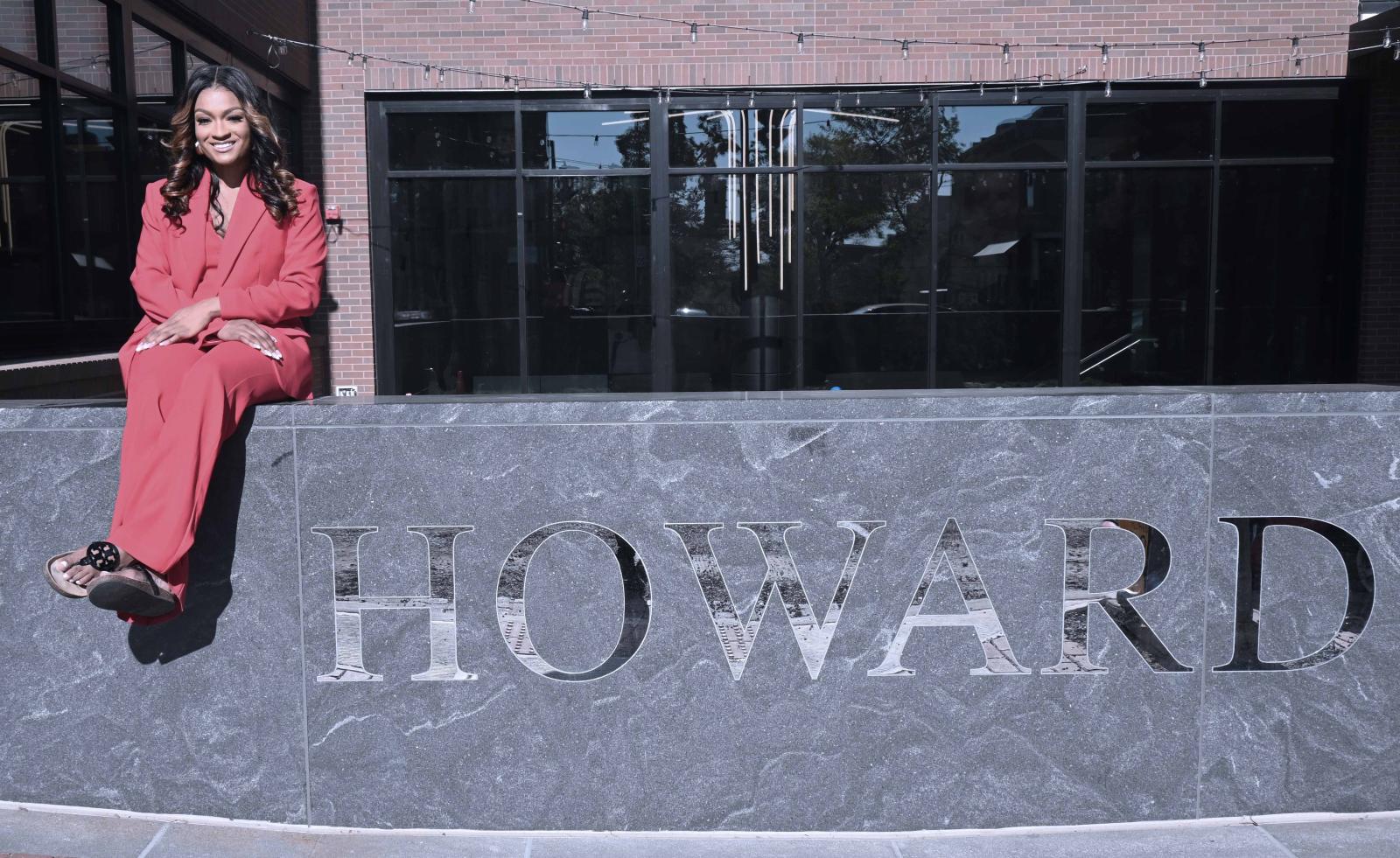
When it came time to choose a law school, someone as accomplished as Janvier undoubtedly had plenty of options. Howard University School of Law, however, was always her number one choice. Since her arrival, she’s soaked in the school’s history and heritage, humbly but boldly adding her footprints to ground tread by jurists who changed the world. She was named Student of the Year for two consecutive years, earning the title of Best Oralist at the Annual Watson Moot Court Competition hosted by the U.S. Court of International Trade. It is no wonder that she is a NAACP Legal Defense Fund Marshall Motley Scholar, named after Constance Baker Motley, first Black woman to argue at the Supreme Court, and Thurgood Marshall, the first Black U.S. Supreme Court justice. Like Motley, the Haitian-born Janvier is a Caribbean American, and like Marshall, she will soon be a Howard School of Law alumnus. For her, attending and graduating from Howard has been a “surreal” experience.
“It is an honor to have been taught by the people who led the Civil Rights Movement in this country and to know that they had similar discussions to those I had in the classroom in the same meeting of the minds, thinking through what can be,” she said. “I spent a substantial amount of time studying the work of Charles Hamilton Houston, Supreme Court Justice Marshall, and the legendary Pauli Murray and the litigation strategies that they thought through, like how to bring about Brown v. Board of Education, for example. They really utilized Howard as a training ground. I’m forever indebted to the school and to my professors — investors who helped me grow in this way — and also to the people who came before me. I know clearly the torch that I’m carrying and the obligation I owe to my people to continue the legacy and not just rest on that of the people who came before, but to build on that foundation.
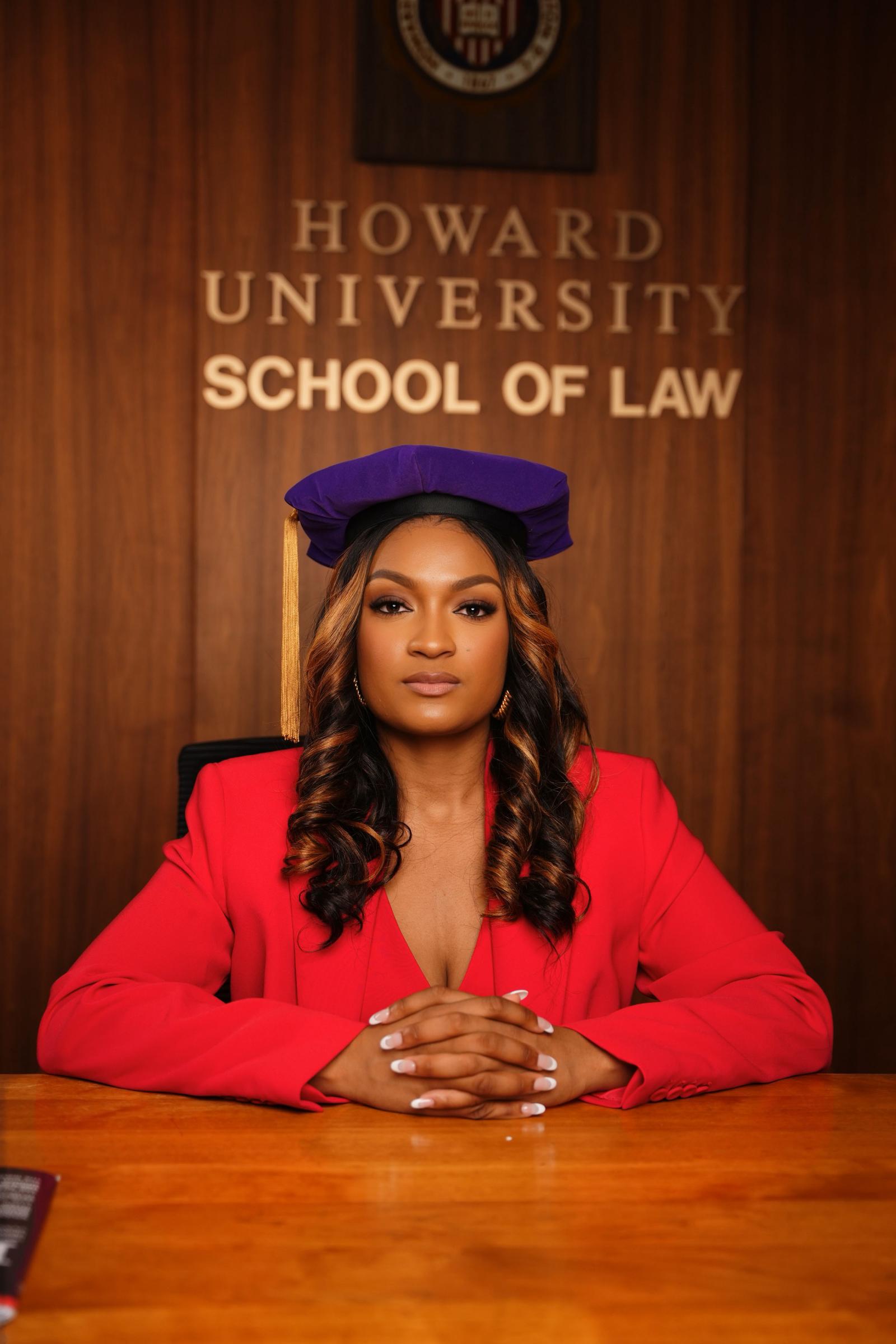
It’s no surprise that Janvier has already made waves on the national stage. As a Howard Law student, she was elected as the 58th national chair and CEO of the National Black Law Students Association. As the organization’s leader, she organized conventions, engaged national legal icons like Benjamin Crump, and raised hundreds of thousands of dollars for the organization’s programming and advocacy. For her work, Essence magazine named her one of “15 Black Women Leading The Fight For Voting Rights Protection.”
"I think because of my lived experience, I was always hypersensitive to the people at the margins, the people who lived not within the norm or the majority, but who had nuances to their experiences."
“I think because of my lived experience, I was always hypersensitive to the people at the margins, the people who lived not within the norm or the majority, but who had nuances to their experiences,” she said. “Ultimately, my priority is servicing people. I really want to be in the courtroom utilizing the judicial system to get justice for people.“
Researching Voter Suppression in a New Age
Janvier’s deep respect for the lawyers who have worked to protect civil rights led her to conduct her own research and examine how voter suppression may manifest in the near future. Instead of poll taxes and literacy tests, she is looking at the impact of emerging technologies, including artificial intelligence, “deep fake” video, robocalls, and social media ads. Each has the potential to be manipulated and widely spread disinformation designed to mitigate the voting power of certain targeted groups. She is deeply concerned that emerging technology can be used to exacerbate inequalities and is looking into how the 14th Amendment to the Constitution can be used to protect voters.
Janvier has spent time on the ground with impacted voters, listening to their experiences. She has also been researching the Constitution-based claims people could bring in court if they feel that their rights have been violated. Her research has uncovered deep fakes spread through social media which spread misinformation during the past election. She argues that the Voting Rights Act was created as a framework for people to use in protecting elections, and wants to make sure that it can be applied even as technology advances.
“What if facial recognition is used to access polling sites in the next election?” she asked. “How does that impact people who have always been disproportionately affected? With the rise of AI in our society, we just need to be forward thinking on this, understanding how it will impact transparency and accountability.”

She notes that, especially at the state and local level, AI can be used to create content portraying candidates doing and saying things that they have not. Through her research, she has looked at federal and state legislation that bans the use of AI to create deceptive content intended to influence elections and cause confusion as ballot measures are considered. Her research points to a very fragmented approach across the nation. She’s continuing her research, which she believes will call attention to the need for a more coordinated national approach.
“I think my biggest findings were that there is a lack of regulation right now in regards to artificial intelligence and how it intersects with democracy,” she explained. “There hasn’t been a comprehensive policy or law that as been put in place, so it’s really a free-for-all right now as to how those things are governed. Then, on a state level, one state might have regulations around how AI is used in elections and another state might not. We need to be thinking through what algorithm bias looks like.”
Paying It Forward
In her heart, lawyers have been important to Janvier for quite some time. In the second grade, she needed an advocate when domestic violence caused her and her sister to find themselves in the court system. She needed someone who could speak for her in ways that she could not for herself. Thankfully, a Black woman lawyer was sincere and forceful in ensuring that the sisters’ rights were protected and their legal needs were respected. Janvier never forgot what it felt like to have someone who looked like her who was willing to fight for her.
“At the time, I just remember the feeling of having someone to advocate for the things I felt I couldn’t say at the time,” Janvier said. “Because of the power dynamics, I didn’t feel like people would listen. That was my first interaction and exposure to what advocacy looked like and then more specifically what representation looked and felt like.”
A freshly minted law school graduate with Janvier’s credentials could do just about anything — including making breathtaking amounts of money at a prestigious law office. After all, U.S. News and World report ranked Howard No. 13 in the nation for graduates who go on to work at big law firms. The money doesn’t faze her, however. After graduation, she’s headed back to Florida to work for the American Civil Liberties Union. The organization, which has argued more Supreme Court cases than any other, represents people whose rights have been violated. That work is right up Janvier’s alley.
“I left Florida knowing that my legal experience and training at Howard would prepare me to do work that people are running away from right now,” she explained. “It’s important that now, more than ever, we recognize that the things we fought years for are being stripped away every single day. I want to be part of ensuring that there are protections in place for the next generation of people who will live beyond my time on this earth. Specifically in Florida, the state just needs as much help as it can get in regards to people fighting for our collective power in our collective movement.”
